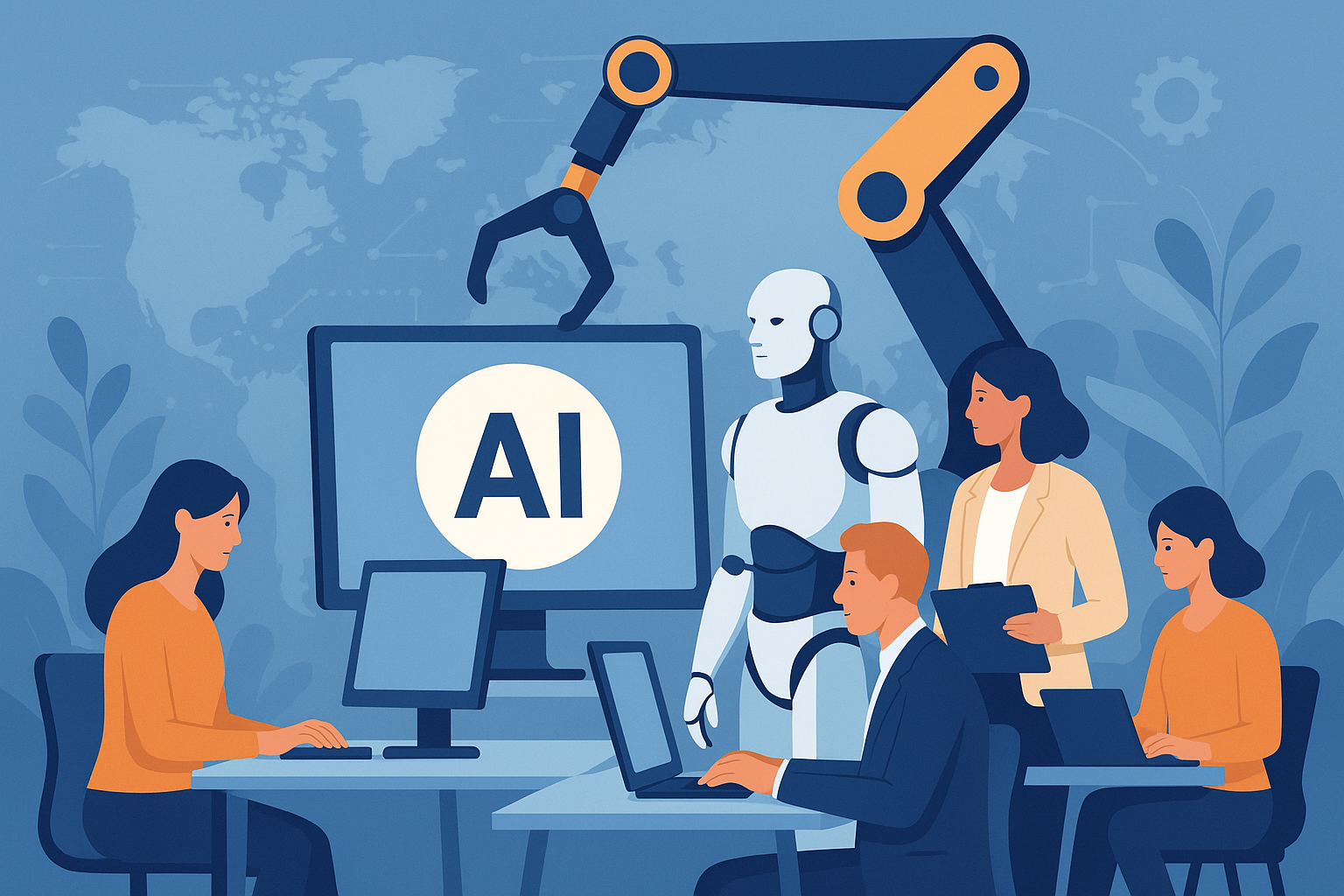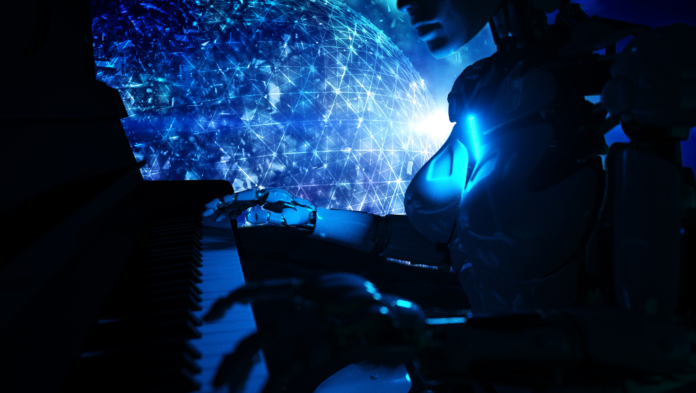Artificial Intelligence (AI) is quickly changing how people work. It’s no longer just a future idea—it’s happening now. Some jobs are already being replaced or changed by AI, and many more are starting to feel its effects.
How Big Is the Impact?
AI could affect a lot of jobs. A UN report says that 40% of jobs worldwide might change in the next 10 years because of AI. Goldman Sachs even estimates that about 300 million jobs could disappear globally.
But it’s not all bad news. The World Economic Forum believes AI will also create 170 million new jobs by 2030, which is more than the number it replaces. So, overall, there could be 78 million more jobs thanks to AI.
Jobs Most at Risk
Some jobs are more likely to be replaced or heavily changed by AI. These include:
-
Data Entry: AI is very good at handling large amounts of information quickly and accurately. About 69% of these tasks could be automated.
-
Customer Service: Chatbots and virtual assistants are taking over basic customer questions. By 2025, 95% of customer interactions could be AI-powered.
-
Admin & Office Roles: Receptionists, schedulers, and clerks are at high risk, with 80% of tasks potentially automated.
-
Factory & Warehouse Jobs: Robots and AI are replacing humans in many manufacturing and packing roles. Around 20 million jobs could go away by 2030.
-
Driving Jobs: Self-driving vehicles could take over long-distance truck driving and delivery jobs. In the U.S. alone, up to 294,000 truck drivers may be affected.
-
Finance & Accounting: AI can now handle bookkeeping, audits, and even some financial analysis. In the UK, over 25% of accounting jobs could be automated.
-
Legal Support: AI is learning to review documents, do legal research, and draft paperwork, impacting paralegals and clerks.
-
Writers & Editors: AI tools can write, proofread, and translate content, which affects many media-related jobs.
-
Medical Diagnostics: AI can now read medical scans with high accuracy, which is changing how some healthcare jobs work.
Which Industries Are Most Affected?
| Sector | Jobs Affected by AI | What’s Happening |
|---|---|---|
| Admin | 80% | Routine tasks automated |
| Retail | 70% | Self-checkouts, online shopping |
| Manufacturing | 60% | Robots do manual work |
| Media | 60% | AI writes and edits content |
| Legal | 45% | AI reviews contracts |
| Finance | 40% | AI handles bookkeeping |
| Healthcare | 30% | AI helps with diagnostics |
| Technology | 20% | Some coding automated |
Even office jobs are no longer “safe.” A study says over 30% of workers might have half of their tasks changed by AI tools like ChatGPT.
It’s Not Just About Job Loss—Jobs Are Changing
Instead of replacing all jobs, AI is often changing how we work.
By 2025, 60% of jobs will have at least 30% of tasks done by or with AI.
For example:
-
Marketers are using AI to analyze data so they can focus more on strategy.
-
Financial analysts now spend less time collecting data and more time making smart decisions based on it.
New Jobs AI Is Creating
AI is also making space for completely new jobs. Some examples are:
-
AI Ethics Officers – make sure AI is used fairly
-
Human-AI Team Managers – help people work better with AI
-
AI Trainers – teach AI how to understand people better
-
Data Scientists – build smart AI systems
-
Industry-Specific AI Experts – apply AI to fields like healthcare or finance
AI-related job openings are growing fast—up by 74% per year, and expected to grow 300% by 2025 compared to 2020.

Different Impact Around the World
AI won’t affect all countries the same way:
-
In rich countries, about 60% of jobs could be affected.
-
In low-income countries, it’s closer to 26%.
By 2025, some places will see big growth in AI jobs:
-
North America: 1.5 million new jobs
-
China: 1.2 million
-
EU: 900,000
-
India: 800,000
-
Southeast Asia: 400,000
What Should We Do About It?
AI is changing jobs in big ways—some are disappearing, others are evolving, and new ones are being created. The real challenge is how we deal with this change.
We need:
-
Better education and training to help people learn new skills
-
Support for workers who lose their jobs
-
Fair ways to share the benefits of AI
If you’re worried about your job, the best thing to do is build skills AI can’t replace easily—like creative thinking, problem-solving, people skills, and the ability to adapt to new things.




